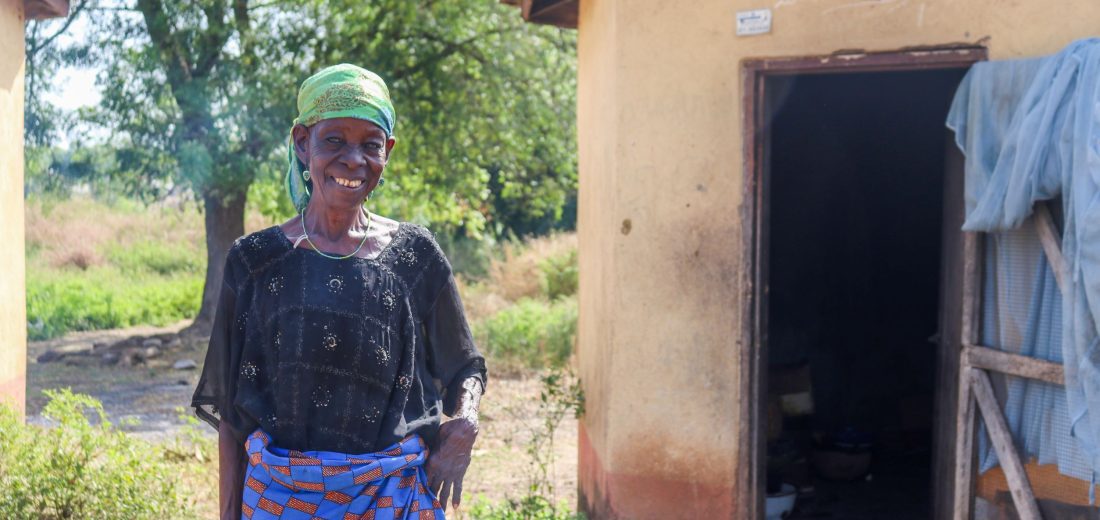
In most societies, old age is associated with wisdom, and the elderly are cherished and revered, but in certain northern parts of Ghana, it is linked to witchcraft. Some elderly people – mostly women – are forced to flee their homes for their own safety and seek shelter in dilapidated and remote settlements called ‘witch camps.’ Nevertheless, a turning point is in sight: the end is imminent.
Tamale is reputed as the fastest growing city in West Africa. It is also the home of Songtaba, a civil society organization that has been advocating for the rights of women, especially those who are outcasts, since 2005. In this region especially, that is the order of the day. At the entrance, Abdul Kasiru Shani is already waiting; he is the head of programs and policies. Inside, an intriguing image of hands holding each other by the wrists around a woman’s figure immediately captures our attention.
‘That’s our logo,’ he tells us. ‘Songtaba is a Dagbani word in the local dialect that means “helping each other” – which is what we are trying to do. Here in the north, women’s and girls’ rights have been under pressure for a long time. Now, more than ever, there is a need to fight for their rights. That is why the logo shows a kind of support circle around them.’
Witch Camps
The story of witch camps does not seem to be a phenomenon prevalent only in northern Ghana; it is endemic to many West African countries and an element within traditional religion. These are stories of women who have long been treated unfairly and marginalized because of cultural practices and beliefs. Natural occurrences such as death, drought, sudden illness, or an apparition in a person’s dreams have always been used to put people away indefinitely in isolation or ‘witch camps.’ The camps in northern Ghana date back more than a century, it is thought. Somehow, this practice has stood the test of time – yet the victims are still the same: women.
There are currently four camps, spread out across the region, with a total of 277 women. Abdul Kasiru Shan terms most who have escaped as lucky as some are lynched and in extreme cases torched by an angry mob after the accusations have been leveled. ‘We decided to intervene,’ Kasiru says, ‘because the allegations affected not only women but also young girls. Usually, the women flee with their daughters or granddaughters once they have to leave their homes.’
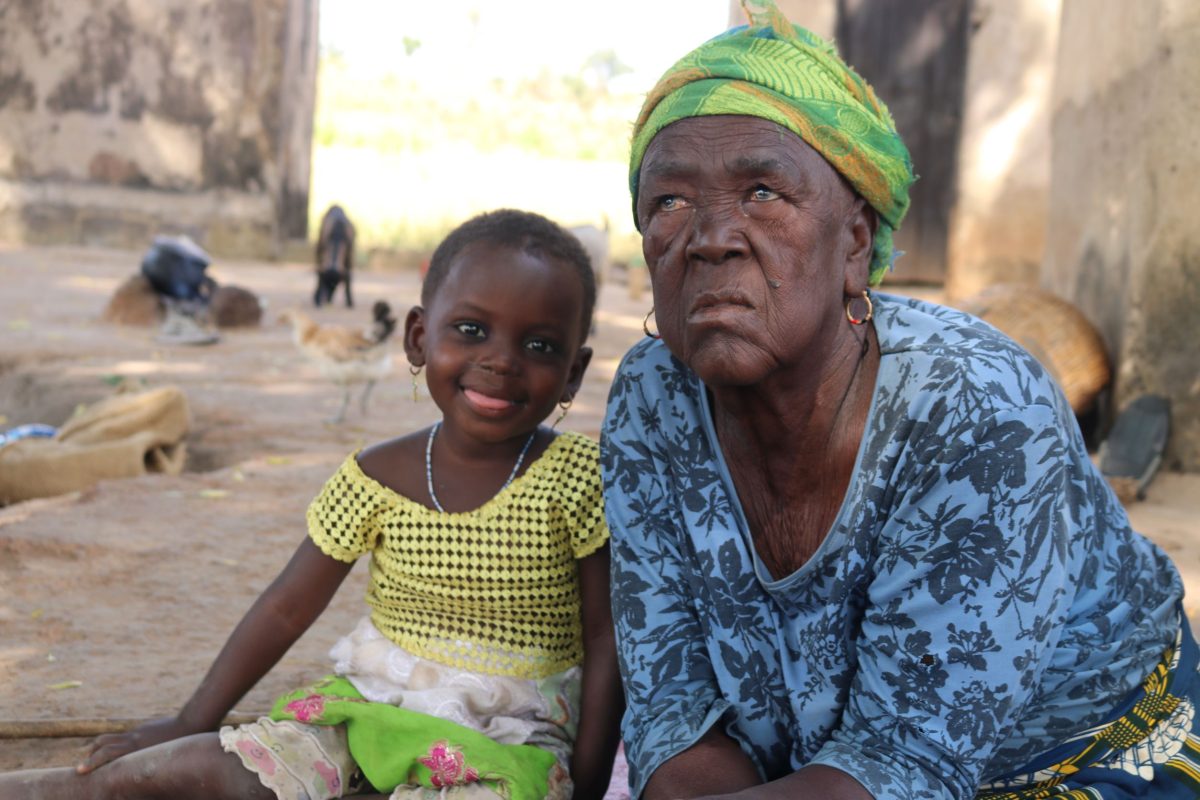
According to him, there always seems to be a motive behind the accusations. He cites the example of a widow who might face such claims now that there is no male figure to protect her. ‘Most claims are made by family members, in this case when there is a desire to seize property left by the deceased spouse. It is evident that being accused of witchcraft has become a gendered issue, disproportionately biased against women as a group.’The value of old age in some cultures and the status that comes with it is unfortunately not universally recognized. Sometimes the elderly – and mostly women – bear the brunt of accusations because they are assumed not to be as useful to the community as they once were. Age-related mental illnesses have exacerbated such accusations, although there are relatives who would bring their elderly mothers or grandmothers to the camps in advance, because of the high number of accusations against old women. This way, they would not be subjected to humiliation, should an accusation be made.
It is generally accepted that they should be exiled far away from their original communities to ensure that ‘their evil magic’ cannot harm others. As a result, their children drop out of school because it is no longer nearby. And if they could still go to school, they would undoubtedly quit anyway due to the shame, social pressure, and stigmatization associated with witchcraft. Making the camps their home is the only option left for these women and girls, perhaps with a few possessions to remind them of their old lives.
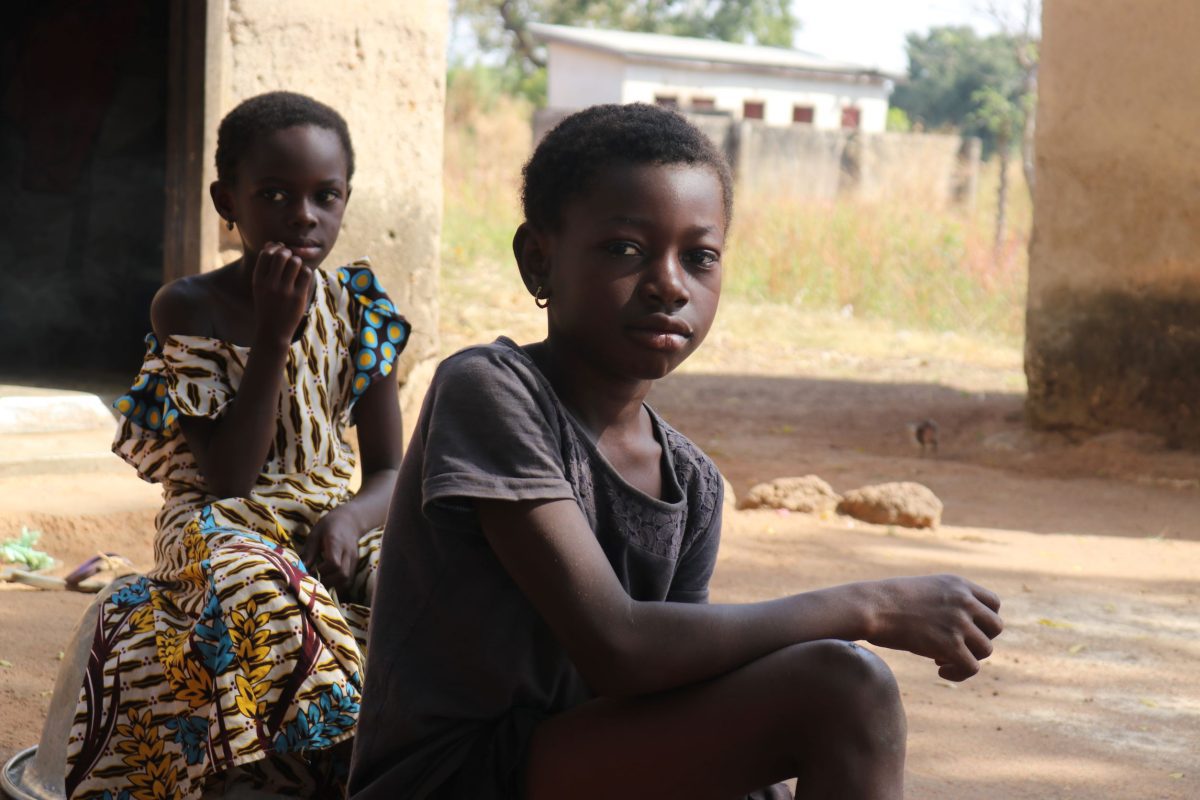
The Undignified Settlements
After more than a hundred kilometers on a dusty road, winding through the endless, dry savannah lined with villages, we finally arrive at Kpatinga camp. The view is blocked by a dense bush, which clings to anything and anyone who tries to peer through – there isn’t even a footpath to indicate that people actually live beyond this greenery. The camp itself has a number of old rugged huts, some with conical tin roofs while others are thatched. Each camp is headed by a tindana, translated from the Dagbani as ‘someone who owns the land.’ They are the physical custodians, believed to possess unusual abilities and are capable of seeing things others cannot. When a suspected ‘witch’ arrives, the keepers perform a cleansing ritual at the altars present in each camp. Ironically, most of the keepers are men.
An elderly man, most likely in his 70s and dressed in white, crosses the compound. His name is Mba Sampa, the tindana on duty and the keeper of Kpatinga camp for over ten years. He sits down at the base of a particularly large tree, at the far end of the quarters. As soon as he sits down, the women start emerging from their huts, their slow gait betraying their age. The oldest resident has been here for over twenty years and they all had to undergo a ritual test at one time or another, to find out who is a witch and who is not.
‘When someone is suspected of witchcraft and expelled from the community,’ says Salifu Haruna, the learning and management officer at Songtaba and our translator for the trip from the local dialect, ‘first a ritual has to take place. This determines whether someone is acquitted of the accusation or not. Usually, the tindana does it: he cuts the neck of a chicken and the way the chicken dies determines whether someone is guilty or innocent. If the chicken dies head down, the woman is said to be guilty and is no longer welcome in the community. But, regardless of the outcome of the ritual of determination, the humiliation of participating in it often leaves the women scarred. They may stay, but the stigma haunts them, with the chance of a new accusation still looming.
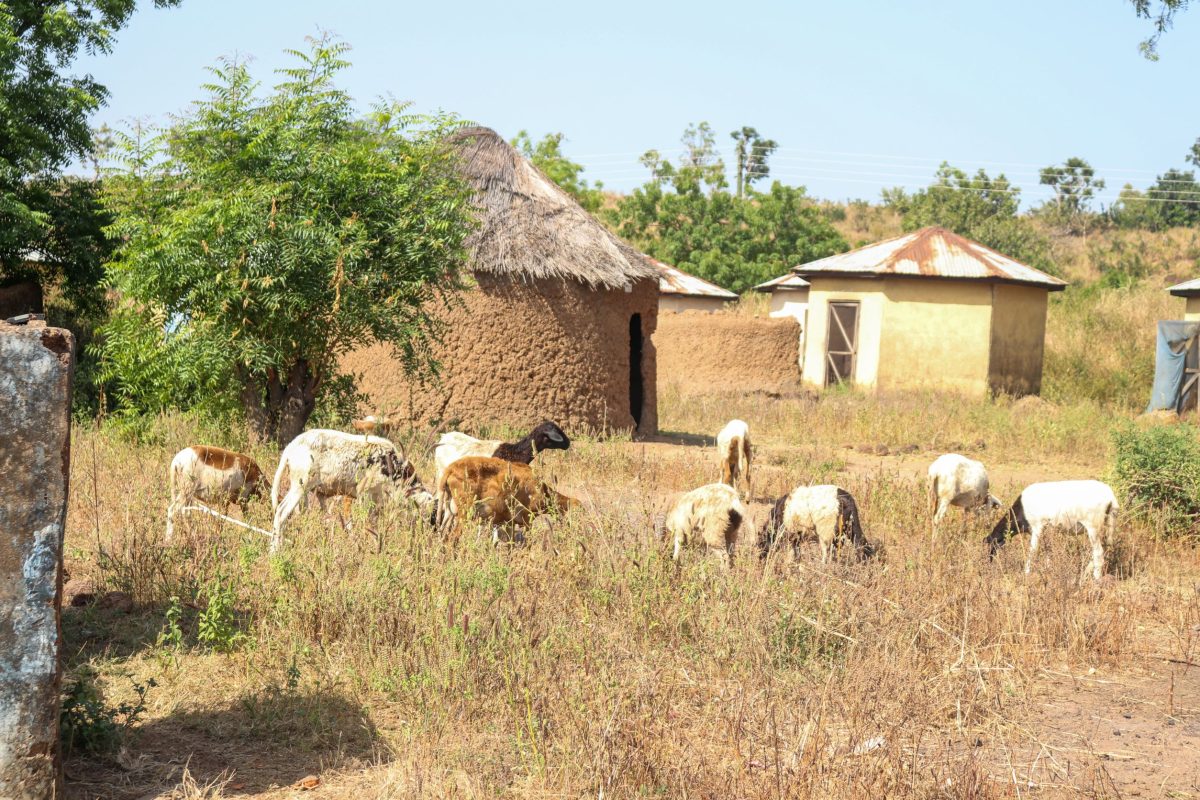
Although the camps can be seen as incarceration centers, to some extent they are also places of refuge. This is because they offer the women a sense of security from the people who want to hurt them. They lack running water, electricity, and proper sanitation, but some would rather spend their lives here than return to their old communities for fear of new charges.‘Most of these women are widows,’ says Haruna. ‘Some have been excommunicated for being too old. If you look at how issues of witchcraft are dealt with, there is clearly gender discrimination and human rights abuses. Fortunately, people are beginning to realize this.’
Reintegration
To put this into context, Haruna gives the example of a woman who becomes financially independent. It is believed that women are not supposed to tower over men, and if they do, it is supposedly through witchcraft. Such accusations are especially prevalent in the poor north, where there is little education. When we started our reintegration program, this was clear as day.’
‘That’s right,’ says Abdul Kasiru Shani, who is also with us. ‘I remember when we started the reintegration, a friend of mine approached me on the street and said, “You say you want to bring the witches back into the community? We will never accept them!” He went on to add that if we persisted they would kill them.’ He recollects that he had to explain that it was a violation of their human rights, something his friend had clearly demonstrated he wasn’t aware of. Kasiru’s main concern was a 2011 government decree that ordered the closure of the camps after a year, as a strategy to prevent the exile. But with an attitude like his friend’s, it had no chance of success. ‘Where would the women go?’ Kasiru asks. ‘To their community they are pariahs. If they went back, most of them – if not all of them – would be killed.’It is thanks to the intervention of ActionAid Ghana and Songtaba that the decree was delayed so that they could look for other safe and sustainable ways to reintegrate the women. Since it is a culturally ingrained practice, a deliberate approach was needed to eradicate it completely – and education was best placed to achieve this.
Engaging Relevant Stakeholders
‘Reintegration is not easy,’ Kasiru continues, ‘but we are making progress by involving traditional and state authorities at the municipal and district level and seeing how they would handle it from a human rights perspective. We have started a program called The Gender Transformational By-Laws, designed to punish the way women are accused and ostracised.’Working with the traditional authority, whom Kasiru sees as the guardians of the ancient culture, has paid off. If these high-profile leaders approach the issue from a human rights perspective, they can engage their communities and encourage them to reflect even more deeply or precisely on how women are now accused. The majority of people in this region practice the Islamic faith, so Kasiru also involved the religious leaders in the discussion. He emphasizes that it is not Songtaba’s role to determine whether someone is a witch or not but to challenge the way the accusations are made.
‘Often it’s the youth that will start the extremely violent behavior against those women. They point fingers and come out in huge numbers, declaring that they never want to see that person around again and if she doesn’t flee, they beat her up.’‘We have employed youth activists to make their fellow youth aware of these outrages. Through their intervention, people are starting to see the benefit of getting the women back, of reintegrating them into the community. They are now also involved in the national conversation about this topic, which was previously taboo.’Songtaba currently has a reintegration committee made up of the clergy, civil society, state institutions, and the traditional authority. It has been essential in moving this issue up the national agenda by engaging all relevant people – and now the women can safely reintegrate into their society.
Ayishetu’s Saga
Ayishetu Adam is a classic example of the impact of their work. She reintegrated into Kalphoni, one of Ghana’s northern districts, although she later moved to Sognayili community to live with her son. Thus, through Songtaba and the committee partners, all women are given the choice of either going back to their old communities or moving to new ones. After hours of trying to locate where she moved to, we finally locate her new residence. It is eight o’clock in the evening and she is sitting on a wooden chair, under a dimmed light bulb in front of a little brick house, which she says Songtaba helped to build. She lives there with her son, daughter-in-law, and grandchild. She can now call it her home, something she thought she would never be able to do. It has been seven months since she left the Kukua camp where she lived for ten years. She does not know her age, like so many of her peers in the camp, but the events that led up to her expulsion are firmly etched in her memory.
‘I am from Tampion,’ she says, a village not far from Kpatinga camp. I was the second wife of a man who had three wives. After there was a tragic death in our home, relatives and my fellow housewives started to accuse me.’ She falls silent for a moment, hesitating. Her son Adam Andani notices the discomfort and continues the story. He vividly remembers when his elder brother called, informing him that their mother had been summoned to the chief’s palace.‘They accused her of being behind the death of my stepbrother, the son of a fellow wife, and she was convicted for it. We were inconsolable, but the whole community wanted her gone. It was out of our control, so we had to let her go.’ His own life was never the same, especially when he went blind soon after.
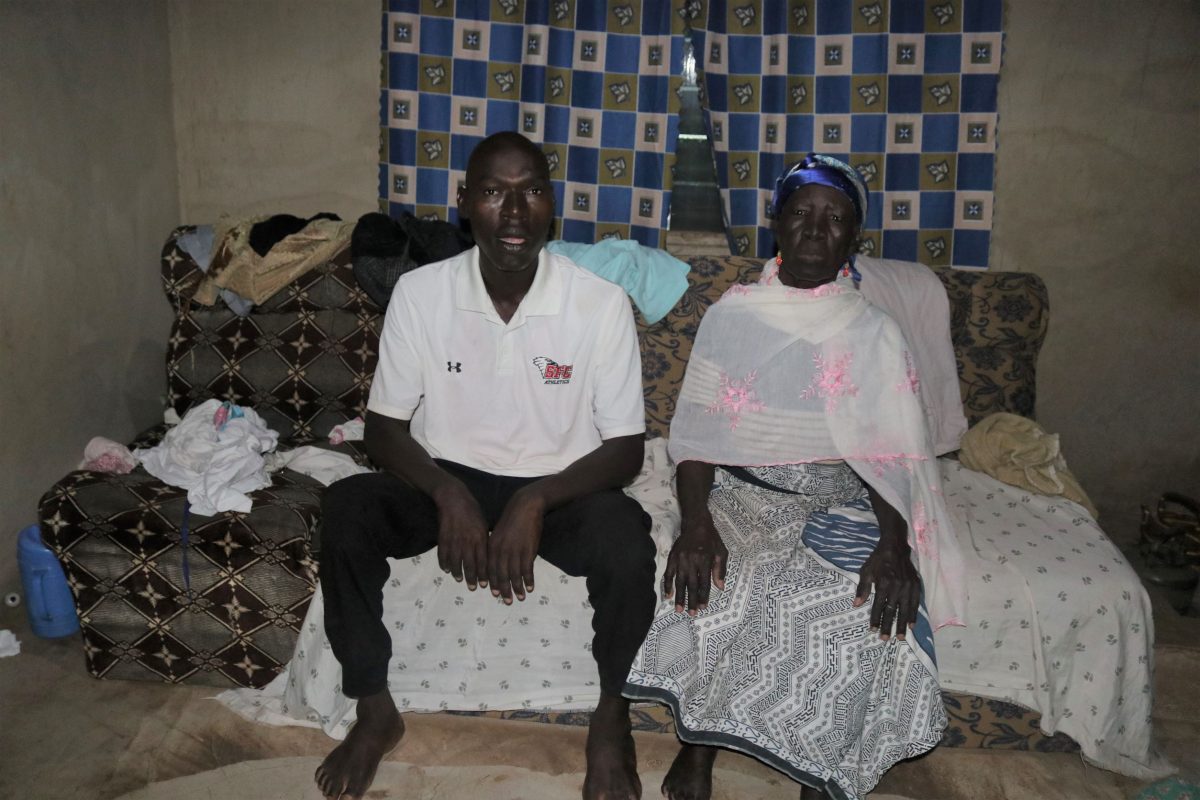
He was thirty at the time and could think of nothing else. ‘Every time I held a plate of food,’ he says, ‘my thoughts were with my mother: What could she be eating right now?’ The fact that he could not even visit the camp troubled his mind even more. Such visits require permission from the local chief, which is a lengthy process in any case, but since these women have been reduced to outcasts and nobody wants to have anything to do with them, family visits are usually infrequent. Andani argues that women should no longer be victims of this. He relates it to himself: ‘I am blind, but you don’t hear me blaming anyone or saying it’s because of witchcraft.’ He could have engaged a fortune-teller, he says, which is common in such cases. But he does not believe it is because of evil spirits, so he refrains from doing so, as it would cause yet another woman to be banished. ‘I was lucky to be a bit older when my mother had to leave, so the backlash from the community was not as intense. But not too many children will be that lucky if the practice continues.’
‘Countless children have been deprived of their mother’s care and the girls living in the camps are not given an equal opportunity for a good education. We are stifling the vitality of our communities all in the name of old customs and ideas.’‘I am very happy,’ his mother adds, ‘now that I am reunited with my family. Some relatives can visit me again. This was not possible before, in the camp, where she brooded unceasingly about her approaching old age, with no one to look after her. ‘Now that I am home, I can easily get all the help I need.’ She concludes by saying that she would not wish anyone a life in the camps.
Sustainable Solutions
Since Songtaba began their advocacy and support work, they have helped reintegrate more than two hundred women into the community and managed to dismantle two camps, in collaboration with ActionAid and the Ministry of Gender, Children and Social Protection. Nevertheless, there is nothing sustainable that the women in the camps can do: those from Kpatinga live on philanthropic gestures and well-wishers for their basic necessities.
‘We suggested and set up activities in which the women from the camp could participate,’ says Kasiru, ‘such as farming, for which we arranged land from landowners. But now most of them are too old and cannot cope with farming, so they depend on what we have to offer. To supplement Songtaba’s support, the younger women of Kpatinga do menial farming works on nearby farms.’Because of Songtaba’s intervention, some of the women now fall under the government’s social security program, called LEAP, which was set up in 2007 together with UNICEF Ghana and USAID. Its aim is to solve acute poverty by providing a monthly allowance and health insurance to highly vulnerable groups.
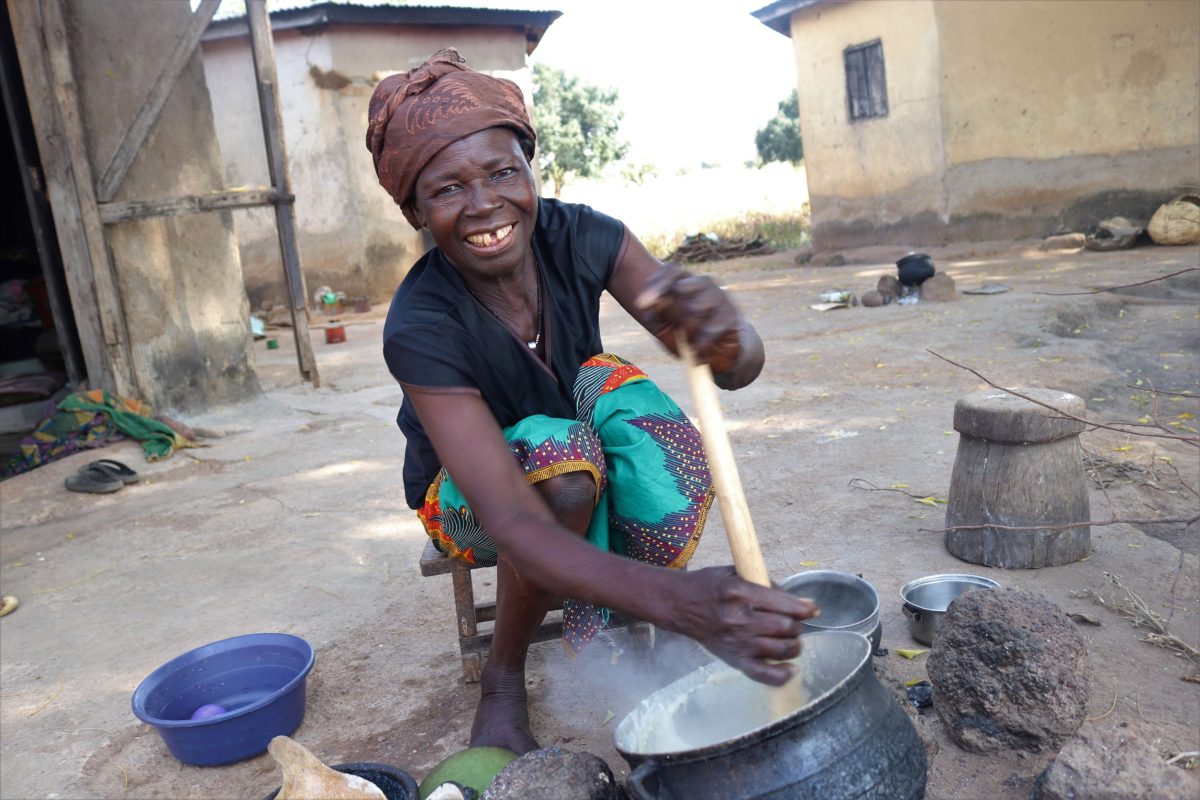
Salifu Haruna adds that Songtaba has been instrumental in reducing gender-based violence and human rights violations in the north. ‘We are also making sure that girls from the camps can get a good education – not just to enroll in school, but that they stay and finish. Most women have now been safely resettled, either in their old community or in a new one, without being accused of witchcraft again. This suggests that our approach is quite sustainable.’‘The fact that things are going so well,’ he says, ‘is also because people are now much more aware of each other’s rights. With government support, lynching and banishments will soon be banned. Songtaba is hopeful that this practice will be a thing of the past. Our only long-term solution is to abolish the camps,’ says Kasiru. ‘Caring for the elderly women will no longer be a problem once they are reintegrated into society.’
-
Cynthia
13.04.2022Wow! What a read!

Leave a Reply